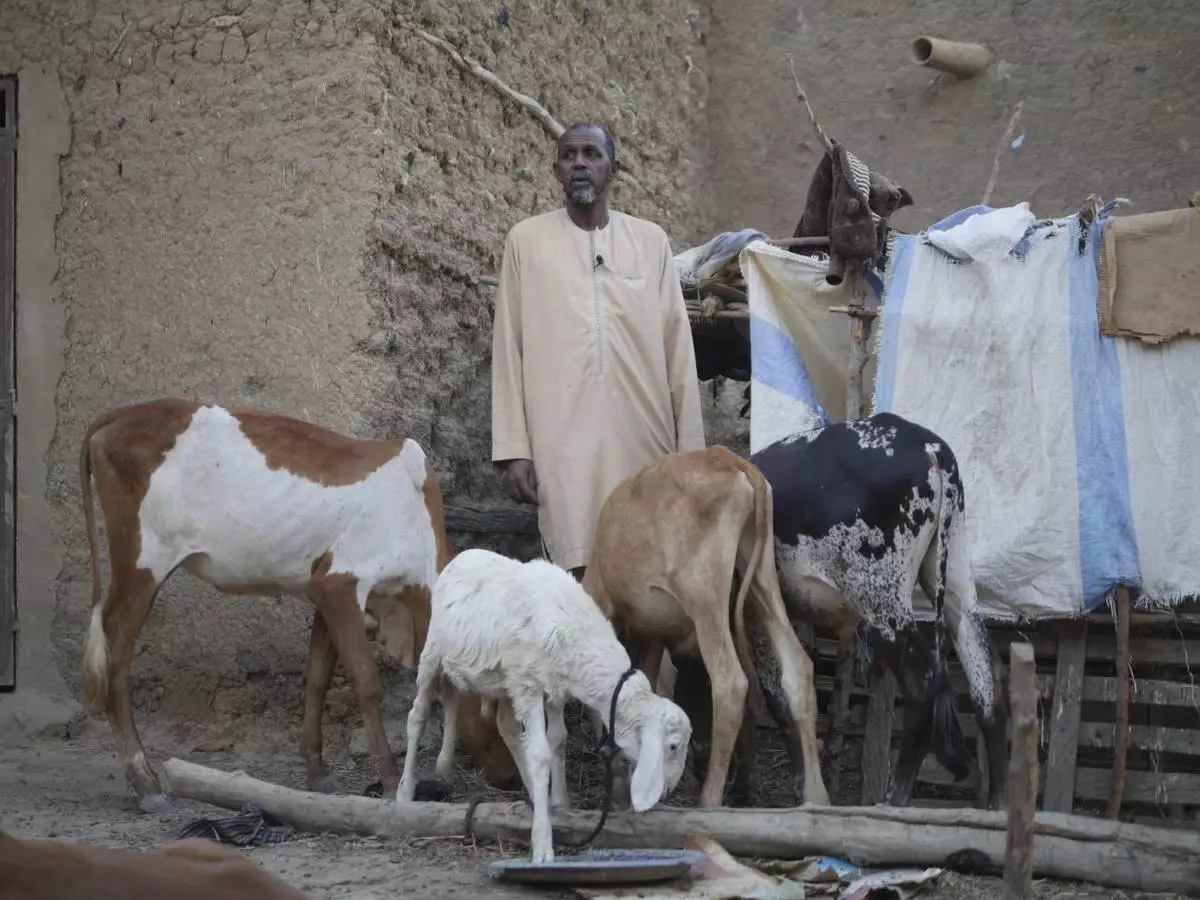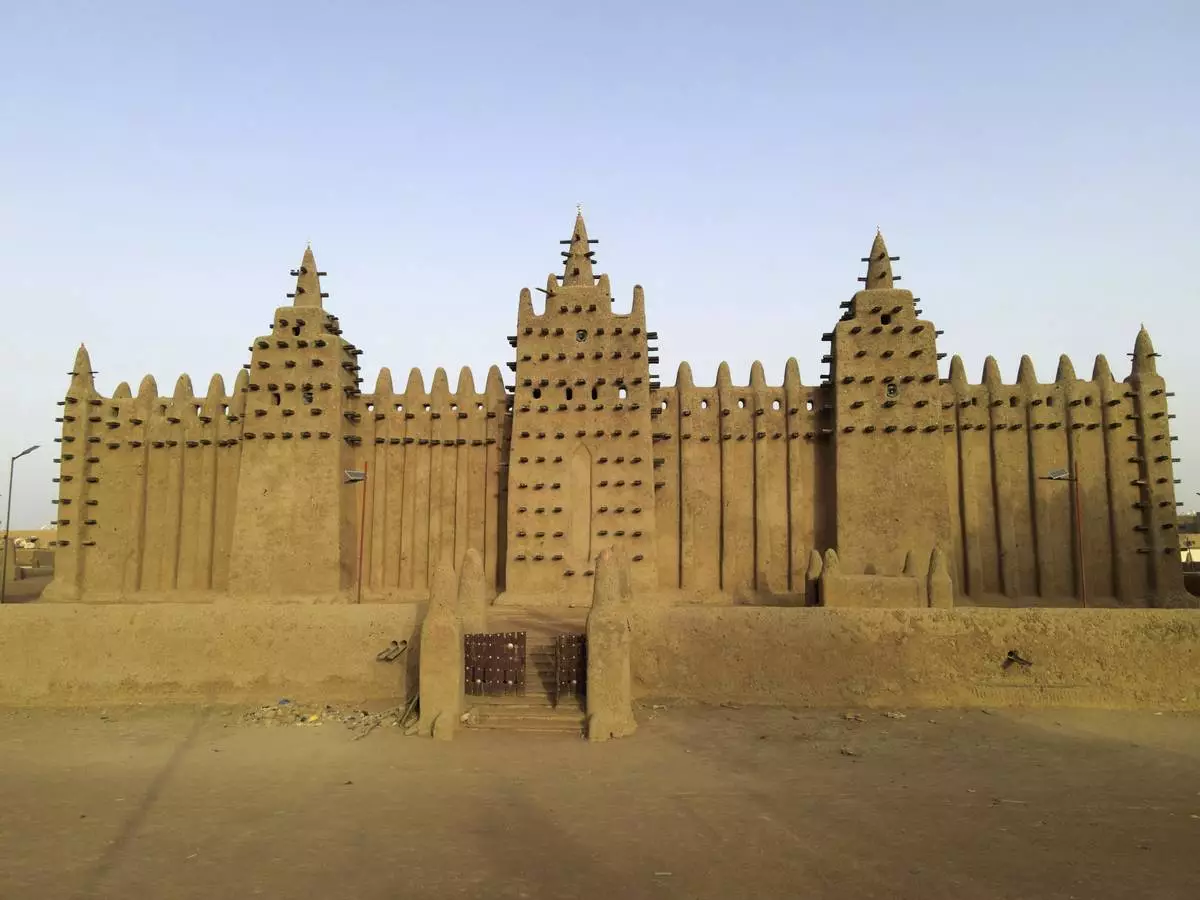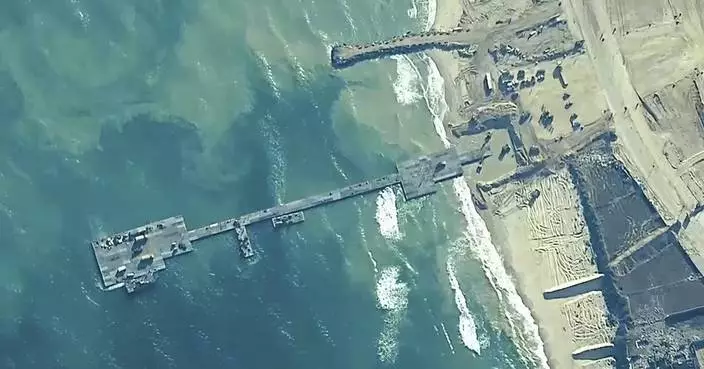Tennessee fired Kellie Harper as the Lady Vols coach on Monday after five seasons.
Athletic director Danny White announced that Harper would not return, saying he told Harper that her alma mater was making a change after a “thorough review” of the women's basketball program.
“Decisions like these are never easy to make, especially with someone who has done so much for the Lady Vols as a three-time national champion student-athlete," White said in a statement. “Her love and passion for Tennessee and the Lady Vols is second to none. She has invested so much heart and soul into our program and truly has given her all for Tennessee.”
Harper finishes her Lady Vols coaching tenure with a 108-52 record, including 53-24 in Southeastern Conference play. She had become one of only two coaches to take four different programs to the NCAA Tournament.
But that's not the standard at Tennessee, which she helped win three straight national titles as a player under the late Pat Summitt. The Lady Vols remain the only program to make every NCAA Tournament.
White said he talked with the Lady Vols and plans an aggressive search for the next leader of a program with eight national championships. Tennessee hasn't won a national title since 2008 with Summitt. The Lady Vols have not reached a Final Four since then.
Harper coached the Lady Vols to consecutive Sweet 16s each of the past two seasons. But they lost to her former boss Wes Moore and North Carolina State in the second round 79-72 to end her fifth season.
She called it an honor to work at her alma mater and coach a program she loves dearly.
“I am grateful for the opportunity my staff and I have had to lead an amazing group of young women and to mentor them on the court as well as provide them with life skills that will benefit them far beyond the game of basketball,” Harper said in a statement.
Harper, who also had stints at Western Carolina and Missouri State, is 393-260 in 20 years as a coach, with 16 postseason berths, nine in the NCAA Tournament. She led the Lady Vols to consecutive Sweet 16s the previous two seasons, the second after losing starting center Tamari Key in December 2022 to a blood-clot issue.
Tennessee played much of this season without guard Destinee Wells, a three-time conference player of the year lost in December to a leg injury.
The Lady Vols finished third in the SEC four straight seasons between 2020 and 2023. They reached the SEC Tournament championship game in 2023 for the first time since 2015. They lost this year's semifinal to South Carolina on a buzzer-beating 3 on March 9.
This is already the second coaching change in the SEC this offseason. Kentucky fired Kyra Elzy, who won the SEC Tournament title in 2022, and hired Kenny Brooks from Virginia Tech.
Harper was hired in 2019, replacing another former Lady Vols great in Holly Warlick. Warlick was fired after going 172-67 in seven seasons, making it to the regional finals in three of her first four years. But then she couldn't get past the second round in her final three seasons.
That is not the standard at the program once led by Summitt, whose statue stands just outside the arena where the Lady Vols play, or in a league where LSU is the defending national champion, with South Carolina targeting its third title under coach Dawn Staley.
A year ago, Harper was given her third contract extension, running through April 2028.
Men's coach Rick Barnes led his team to the SEC regular-season title and a loss in its second Elite Eight on Sunday.
This story has been corrected to show that Tennessee lost in the semifinals, not the championship game, of the SEC Tournament this season.
AP March Madness bracket: https://apnews.com/hub/ncaa-womens-bracket/ and coverage: https://apnews.com/hub/march-madness

Tennessee head coach Kellie Harper, right, expresses her displeasure to official Karen Preato late in the second half of a second-round college basketball game against North Carolina State in the NCAA Tournament in Raleigh, N.C., Monday, March 25, 2024. (AP Photo/Ben McKeown)
DJENNE, Mali (AP) — Kola Bah used to earn a living as a tour guide in Mali's historic city of Djenné, once a center of Islamic learning known for the sprawling mud-brick mosque that has been on the UNESCO World Heritage in Danger list since 2016.
The Grand Mosque of Djenné — the world’s largest mud-brick building — used to draw tens of thousands of tourists to central Mali every year. Now it's threatened by conflict between jihadi rebels, government forces and other groups.
Bah says his income was enough to support his family, which now numbers nine children, and to pay for a small herd of cattle. But these days, few visitors come to the city, and he has been largely out of work. When he needs cash, he sells some of his cattle.
Speaking to The Associated Press outside his home in Djenné's old town, Bah said locals believed the crisis would come to an end eventually, and that business would pick up as before.
“But the more time passed, the more this dream proved illusory,” he said. “Things are really difficult now.”
Djenné is one of the oldest towns in sub-Saharan Africa and served as a market center and an important link in the trans-Saharan gold trade. Almost 2,000 of its traditional houses still survive in the old town.
The Grand Mosque, built in 1907 on the site of an older mosque dating back to the 13th century, is re-plastered every year by local residents in a ritual that brings together the entire city. The towering, earth-colored structure requires a new layer of mud before the rainy season starts, or it would fall into disrepair.
Women are responsible for carrying water from the nearby river to mix with clay and rice hulls to make the mud used to plaster the mosque. Adding the new layer of mud is a job reserved for men. The joyful ritual is a source of pride for a city that has fallen on hard times, uniting people of all ages.
Bamouyi Trao Traoré, one of Djenné’s lead masons, says they work as a team from the very start. This year's replastering took place earlier this month.
“Each one of us goes to a certain spot to supervise,” he said. “This is how we do it until the whole thing is done. We organize ourselves, we supervise the younger ones.”
Mali’s conflict erupted following a coup in 2012 that created a power vacuum, allowing jihadi groups to seize control of key northern cities. A French-led military operation pushed them out of the urban centers the following year, but the success was short-lived.
The jihadis regrouped and launched relentless attacks on the Malian military, as well as the United Nations, French and regional forces in the country. The militants proclaimed allegiance to al-Qaida and the Islamic State group.
Sidi Keita, the director of Mali’s national tourism agency in the capital of Bamako, says the drop in tourism was sharp following the violence.
“It was really a popular destination," he said, describing tens of thousands of visitors a year and adding that today, tourists are “virtually absent from Mali.”.
Despite being one of Africa’s top gold producers, Mali ranks among the least developed nations in the world, with almost half of its 22 million people living below the national poverty line. With the tourism industry all but gone, there are ever fewer means for Malians to make a living.
Anger and frustration over what many Malians call “the crisis” is rising. The country also saw two more coups since 2020, during a wave of political instability in West and Central Africa.
Col. Assimi Goita, who took charge in Mali after a second coup in 2021, expelled French forces the following year, and turned to Russia’s mercenary units for security assistance. He also ordered the U.N. to ended its 10-year peacekeeping mission in Mali the following year.
Goita has promised to beat back the armed groups, but the U.N. and other analysts say the government is rapidly losing ground to militants. With Mali's dire economic situation getting worse, Goita's ruling junta ordered all political activities to stop last month, and the following day barred the media from reporting on political activities.
Moussa Moriba Diakité, head of Djenne’s cultural mission which strives to preserve the city’s heritage, said there are other challenges beyond security — including illegal excavations and trash disposal in the city.
The mission is trying to promote the message that security isn’t as bad is it seems, he said, and also get more young people involved in the replastering ritual, to help the new generation recognize its importance.
“It's not easy to get people to understand the benefits of preserving cultural heritage right away,” he said.
The Associated Press receives financial support for global health and development coverage in Africa from the Bill & Melinda Gates Foundation Trust. The AP is solely responsible for all content. Find AP’s standards for working with philanthropies, a list of supporters and funded coverage areas at AP.org.

The streets of old town Djenne, Mali, once filled with tourists, stand empty, Thursday, May 9, 2024. The world's largest mud-brick building, the Great Mosque of Djenne used to draw tens of thousands of tourists every year to central Mali. Now it's threatened by conflict between Islamic rebels, government forces and other groups. (AP Photo/Moustapha Diallo)

The campement hotel, the only working hotel left in Djenne, Mali, sits largely empty, in disrepair without running water, Thursday, May 9, 2024. The world's largest mud-brick building, the Great Mosque of Djenne used to draw tens of thousands of tourists every year to central Mali. Now it's threatened by conflict between Islamic rebels, government forces and other groups. (AP Photo/Moustapha Diallo)

Former guide Kola Bah, who has been unemployed since Mali's conflict started and now sells from his small herd of cattle when he needs to make ends meet, poses for a photograph in Djenne, Mali, Thursday, May 9, 2024. The world's largest mud-brick building, the Great Mosque of Djenne used to draw tens of thousands of tourists every year to central Mali. Now it's threatened by conflict between Islamic rebels, government forces and other groups. (AP Photo/Moustapha Diallo)

FILE- The world's largest mud-brick building, the Great Mosque of Djenne, Mali, awaits its annual replastering, Friday, May 10, 2024. The Mosque — the world's largest mud-brick building — used to draw tens of thousands of tourists every year to central Mali. Now it's threatened by conflict between Islamic rebels, government forces and other groups. (AP Photo/Moustapha Diallo, File)














